MEDIA RELEASE: 2020 Colin Roderick Award Shortlist Announced
Monday 3rd August 2020

The shortlist for one of Australia’s oldest literary awards has been revealed.
The Colin Roderick Literary Award was founded in 1967 and recognises the best original book, in the judges' opinion, that is published in Australia in the previous calendar year. Submissions must deal with any aspect of Australian life and can be in any field or genre of writing, verse or prose.
This year’s six shortlisted books feature literary novels and thrillers, a collection of poetry, and a history of the Australian newspaper industry.
Chair of the judging panel Dr Leigh Dale said being shortlisted for the Roderick is a significant achievement.
“We received 168 entries for this year’s award, so these six represent less than four per cent of all books entered,” she said. “There were some fantastic books that we just couldn’t find room for in the shortlist.
“I know some of the judges are heartbroken about some of the books that had to be cut, but we’re also convinced the shortlist reflects the strength and diversity of this year’s field.”
Dr Dale said the panel is looking forward to selecting the winner.
“We have six terrific books,” she said. “It’s always so exciting to be reading those again and talking about which is the best of the best.”
The winner is scheduled to be announced in October.
The award, valued at $20,000, is presented by the Foundation for Australian Literary Studies and is coupled with the silver H.T. Priestley Memorial Medal. The foundation is based at James Cook University and is funded through the generosity of the late Professor Colin Roderick CBE, his wife Mrs Margaret Roderick, as well as donations and membership from the general public.
The shortlist in detail
About
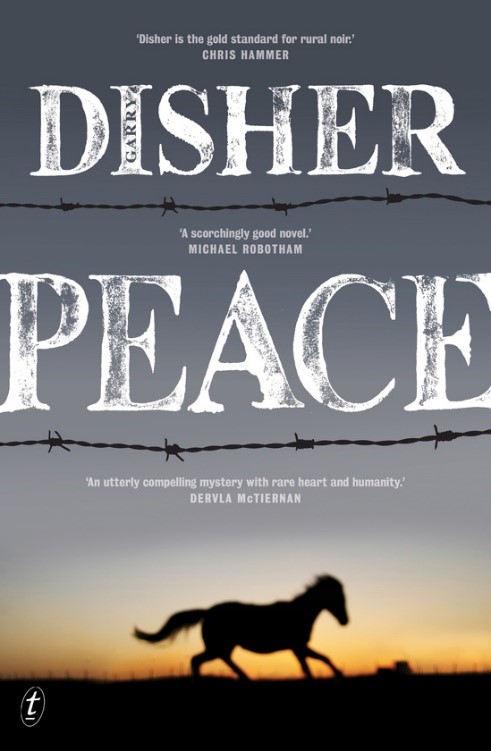
It’s been a peaceful Christmas for Paul Hirschhausen, the only cop in Tiverton. A grass fire, a stolen ute, the usual welfare checks. The big event: Brenda Flann driving her Falcon into the front bar of the pub.
Then Hirsch is called to a strange, vicious incident in Kitchener Street. And Sydney police ask him to look in on a family living on a back road outside town.
Suddenly it doesn’t look like a season of goodwill at all.
Find our more at Text Publishing.
Judges' Notes
While epitomising the ‘rural noir’ that has become so popular, Peace is no common or garden whodunnit: there are so many plots, crimes, victims and criminals, it’s quite a task for the reader to keep up. With its subtle evocations of place and skilful sketches of characters, the ironically-titled Peace presents life in a small South Australian country town, where possibilities for renewal fluctuate according to the sometimes volatile relations among the small population. Combining the grimly plausible with deft touches of humour, the book is beautifully written.
About
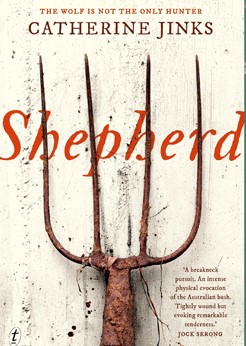
My father trained me to silence the way he trained his dogs, with food and a cane. Speech, he said, was poison. It scared the game, alerted the gamekeepers and betrayed your friends and family.
Tom Clay was a poacher back in Suffolk. He was twelve when he was caught, tried and transported to New South Wales.
Now, assigned to a shepherds’ hut out west, he is a boy among violent men. He keeps his counsel and watches over his sheep; he steers clear of blowhards like the new man, Rowdy Cavanagh. He is alert to danger, knowing he is a foreigner here: that the land resists his understanding.
The question is: how fast can he learn?
Because a vicious killer named Dan Carver is coming for Tom and Rowdy. And if Tom can’t outwit Carver in the bush – and convince Rowdy to keep his stupid mouth shut – their deaths will be swift and cruel.
Find out more at Text Publishing.
Judges' Notes
Prolific writer for children and young adults Catherine Jinks transfers her sights from the fantastical to the colonial in this adult historical thriller. Set in rural Tasmania in the convict era, featuring a brutal killer seeking revenge among the colonists, the prose gallops as a young boy and his beloved dog escape threat and trap after threat and trap. The book evokes the tingling terror of pathological evil.
About
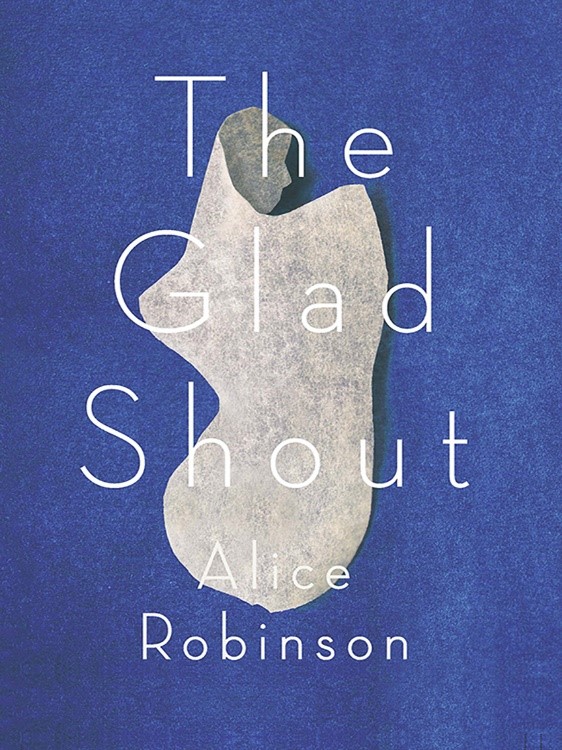
After a catastrophic storm destroys Melbourne, Isobel flees to higher ground with her husband and young daughter. Food and supplies run low, panic sets in and still no help arrives. To protect her daughter, Isobel must take drastic action.
Find out more at Affirm Press.
Judges' Notes
At the beginning of this novel we plunge into chaos, as the bewildered and distressed flood Melbourne’s MCG—now a jam-packed and disorganised relief centre. Robinson’s novel is kind of ‘disaster movie’ in which the flashbacks, the soundtrack, and the stock characters are all rendered in a prose that communicates urgency, stress, determination, anxiety, humanity, while avoiding the clichés of the genre. This convincing and gripping book keeps us waiting for the comforting revelation, the heart-warming redemption, the heroic rescue, but Robinson is too smart and strong a writer for that.
About
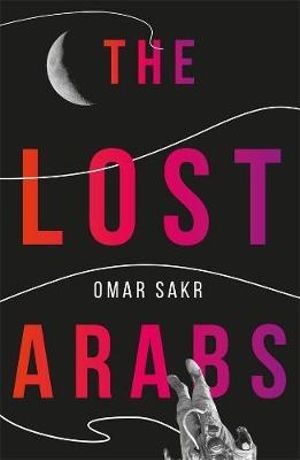
Rising talent Omar Sakr’s vibrant new poetry collection pulses with raw power as it interrogates the topical issues of family, identity and nation.
Find out more at UQP.
Judges' Notes
This is a strong, vigorous and intense collection of free-verse poems that centralise the experience of Arabs in Australia, whilst recalling other homes and families. It shines as a collection with focus and coherence, while showing Sakr’s mastery of a wide, and deftly-applied, range of poetic techniques. The poet is ever-sensitive to the possibilities of ‘the line’ and the rhythms of language, and there are unexpected and startling conjunctions, creating some jaw-dropping caesuras (pauses or breaks within lines). The engagement with the personal, political, religious, and historical subject matter maintains the vigour but also tames the excess. Even when, occasionally, the sentiment veers towards the predictable, Sakr’s language startles it back towards something less comforting.
About
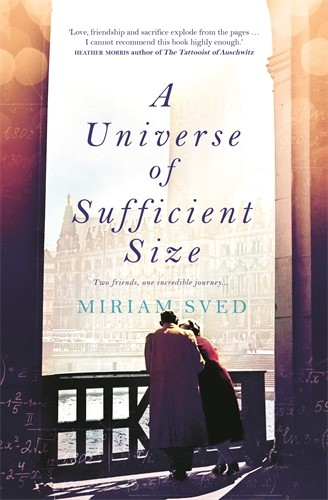
I have wished so many times that I had acted differently.
I wish that I had been more worthy of you...
Eventually the war will end, and then we will find each other.
Until then, remember me.
Budapest, 1938. In a city park, five young Jewish mathematicians gather to share ideas, trade proofs and whisper sedition.
Sydney, 2007. Illy has just buried her father, a violent, unpredictable man whose bitterness she never understood. And now Illy's mother has gifted her a curious notebook, its pages a mix of personal story and mathematical discovery, recounted by a woman full of hopes and regrets.
Inspired by a true story, Miriam Sved's beautifully crafted novel charts a course through both the light and dark of human relationships: a vivid recreation of 1930s Hungary, a decades-old mystery locked in the story of one enduring friendship, a tribute to the selfless power of the heart.
Find out more at Pan Macmillan Australia.
Judges' Notes
A richly intelligent novel, grown from a fascinating family history. At the heart of this literary work is the experience of a group of young Jewish friends, students of mathematics, whose brushes with Nazism in pre-war Budapest profoundly alter their lives. The story is built around a search for truth in contemporary Australia, its characters having grappled with their own emotions and ambitions amidst the seismic effects of the Holocaust. Sved’s writing, which has poetic density, dramatic shape, and precision, is focused on the monstrosity of hatred, the awkwardness of love, and the strange fragility of friendship.
About
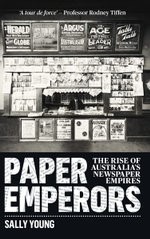
Before newspapers were ravaged by the digital age, they were a powerful force, especially in Australia — a country of newspaper giants and kingmakers.
This magisterial book reveals who owned Australia’s newspapers and how they used them to wield political power. A corporate and political history of Australian newspapers spanning 140 years, it explains how Australia’s media system came to be dominated by a handful of empires and powerful family dynasties. Many are household names, even now: Murdoch, Fairfax, Syme, Packer. Written with verve and insight and showing unparalleled command of a vast range of sources, Sally Young shows how newspaper owners influenced policy-making, lobbied and bullied politicians, and shaped internal party politics.
Find out more at NewSouth Books.
Judges' Notes
Young’s history of the newspaper industry moves from the rise of Keith Murdoch to the fall of Robert Menzies in 1941. Opening with the declaration that ‘newspapers have found it very difficult to tell the truth about themselves’, Young goes on to demonstrate the ways in which major metropolitan newspaper owners have sought not just to report on government, but to influence or even control it. Balancing telling personal details with concise accounts of corporate, political, and technological changes, Paper Emperors tells a gripping story of families, friendships, and sometimes outrageous ambition.
Contact:
Marg Naylor
Foundation for Australian Literary Studies
fals@jcu.edu.au